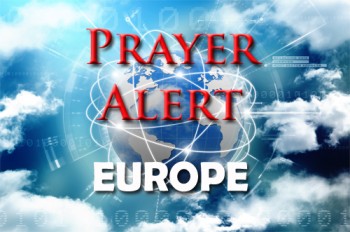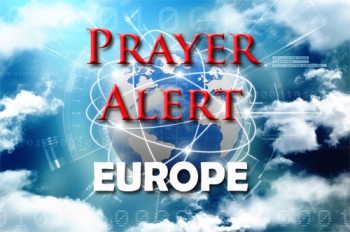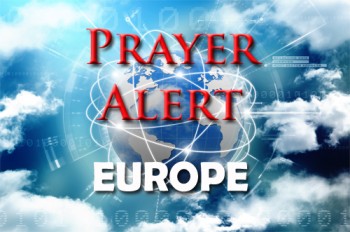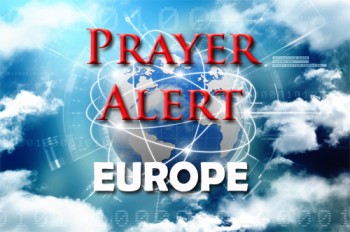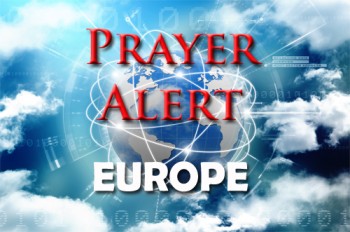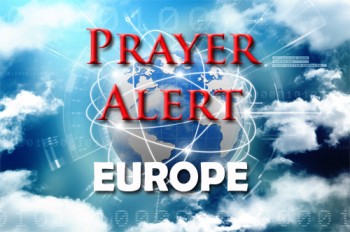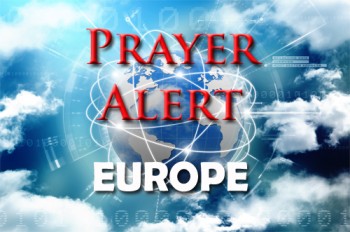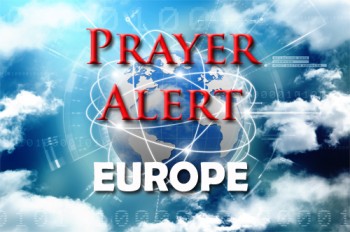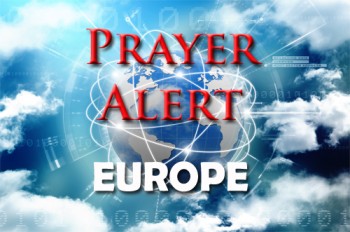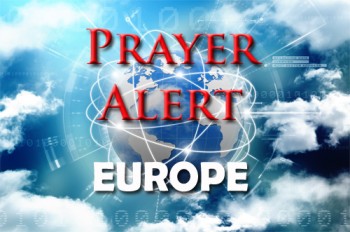Displaying items by tag: Europe
Re-opening Europe
Some European countries are cautiously coming out of lockdown. Italy is opening some factories and construction sites. Spain is allowing hairdressers and small businesses to reopen. Germany’s children are back at school. France is also easing lockdown. Political leaders now grapple with the economic and social shocks that lockdown has left behind, while trying to avoid large-scale second waves of infection. Italy is contending with a fresh rise in migrant arrivals from Libya, an ongoing economic crisis, and uneven support from Brussels. Spain is squabbling over spending as Catalan separatist leaders have seized on the pandemic to reignite the argument that their wealthy industrialised region would be better off independent from the devastated economy of the rest of Spain. Germany handled the coronavirus crisis better than other large European countries and favours cautious reopening, but business groups and local governments want to move faster.
EU could ban Britons
Britons may be unable to travel to some parts of Europe for their holidays once lockdown restrictions are eased, due to the government's decision to use a different contact tracing app from the one being used elsewhere. On 4 May the UK launched its app to trace coronavirus, which has been developed by NHSX, the digital arm of the NHS. They are testing the device on the Isle of Wight as they step up their preparations to ease the curfew. The NHSX smart app works on a different system from the Apple and Google one being used by many European countries, making the two systems incompatible. This leads to fears that if contact tracing becomes mandatory for international travel, UK citizens will be required to go into quarantine for fourteen days on arrival.
Unlocking Europe
Europeans are relaxing coronavirus restrictions for children, with Spain allowing under-14s out of their homes from this week. Holland’s primary schools reopen next month, and French children aged 5 to 11 will return to school on 12 May, but with a limit of 15 pupils per class. The following week, older children will return in selected year groups. Angela Merkel warned that Germany may be rushing its lockdown exit as physical distancing is relaxing and smaller shops reopen. She said Germany remained ‘on the thinnest ice’ despite early achievements. Belgium has a detailed plan to lift coronavirus restrictions gradually, starting on 4 May, when fabric shops will open in order for people to comply with requirements for children over 12 to wear masks on public transport. From 11 May all shops and schools will reopen, with limited pupils in each class.
Russia: Putin accused of deception
In Russia’s underfunded health system, staff who transferred to critical care duties were made to write resignation letters after refusing to work with infected patients without protection. Ambulances queue for hours to deliver patients to overloaded hospitals without oxygen, while desperately-needed ventilators are bought up by billionaires to install in their mansions. The president of a medical trade union who said ‘The government is openly lying’ was later detained by police on a trip to investigate hospital supplies. ‘Putin doesn’t care about loss of life, only loss of power’, said a human rights campaigner. St Petersburg has patients lying on mattresses in corridors. Doctors were incensed when Putin dispatched a planeload of medical supplies to New York when they were having to buy their own equipment online. Pray for Putin’s priority to be human lives, not his popularity or finance agendas.
Denmark: a Bible which does not mention Israel
The Danish Bible Society has released a new translation of the Bible that omits dozens of references to Israel. It rewrites ‘the land of Israel’ as ‘the land of the Jews’ and the ‘People of Israel’ simply as ‘the Jews’. Defending the deletions, the society said they prevent confusion with the modern-day country, but other countries' names from that time, such as Egypt, have not been changed. There are 59 omissions out of 60 references to Israel in the Greek origin for New Testament texts. In other places, references to Israel are translated as referencing all of humanity. The Song of Ascents from the Book of Psalms, a popular Shabbat hymn for Jews, originally states, ‘He who watches over Israel will neither slumber nor sleep.’ The new translation replaces Israel with the word ‘us’.
Europe: coronavirus islands
Saaremaa island, off the coast of Estonia, has been labelled by locals as ‘corona island’ after becoming a hotspot for the virus and being placed into strict quarantine. The first Covid-19 cases on Saaremaa began in March, after a sports event was held there with a team from Italy. Now health officials estimate that half of the island's population have contracted the virus. An overcrowded refugee camp on Chios had reports of an Iraqi asylum seeker dying after being cleared of having coronavirus. This caused riots and widespread damage by fire, leaving hundreds of people homeless. Many still believe she died of Covid-19. Sicily’s health services are stretched because of coronavirus, and 156 migrants on a German rescue ship were refused entry to its western coast. They had to be transferred to another vessel and quarantined.
EU summit: members’ solidarity tested
EU leaders met electronically on 23 April to begin tentatively to unlock the nations’ businesses as the immediate health crisis eases. Restarting Europe’s economy has led to divisive debates over grants: ultimately, how should the wealthier north help out the harder-hit south? The argument over solidarity has become a bitter one, with some favouring ‘coronabonds’ or ‘Eurobonds’ and others preferring grants or a 1.5 trillion recovery fund. Let us pray that all decisions made will successfully help those most in need. May the next steps include a huge increase in the EU budget, so that every member state overcomes the crisis together, leaving no nation behind carrying heavy unmanageable debts. Observers note that EU institutions have struggled to get leaders to put aside their national interests.
A deal is agreed
The Eurozone is in a deep recession. Unemployment figures are spiking to unprecedented highs and debt levels are soaring. It is an economic crisis on a scale not seen since the Second World War, or the Great Depression. Onlookers have watched individual countries retreat into national self-righteousness and mutual finger-pointing in a very un-united attitude that threatens the survival of the EU and will not solve anything. Then, finally, after weeks of wrangling, EU finance ministers managed to reach a deal - to the relief of most. Let us pray that the €500 billion package to help countries hardest hit by the pandemic will succeed in implementing an economic plan. See also
Ukraine: wildfires dangerously close to Chernobyl
Wildfires are just over a mile from the defunct Chernobyl nuclear power plant and a disposal site for radioactive waste. Over 300 firefighters are working to contain the blaze. A toxic cloud rises within sight of the carcass of Chernobyl’s Unit 4 nuclear reactor, the site of the worst nuclear disaster in history. Greenpeace said that the fires were larger than Ukraine’s official estimates and could pose a health risk, saying, ‘A fire approaching a nuclear or hazardous radiation facility is always a risk’. Flames could reach abandoned vehicles at the former plant, causing mighty explosions and spreading toxic fumes and unleashing radiation into the ground near the reactors. The fumes could sweep across vast swathes of Poland, Belarus, Romania, Hungary, Slovakia and Moldova. All are vulnerable: see
EU becoming climate-neutral
The EU wants to be climate-neutral by 2050. That means a restructuring of energy supply, industry, traffic and agriculture. Global warming will result in rising sea levels, with flooding of cities such as London, Rotterdam, and the North Sea coast of Germany, and increases of extreme weather conditions. The C-virus has caused almost everything to stop, which has helped the decrease of CO2. May we learn things from this 'quiet season' which are helpful for the future when life returns to normal. France advocates further use of nuclear energy with new reactors. They now have a better carbon footprint than Germany. Pray for the nations to understand the controversial paths to sustainable development. Pray for Christians and churches to set an example in business and lifestyle that creates CO2 reduction. Pray for governments, commerce and industry to make milestone decisions that halt global warming.
